Responsible Investing
What is responsible investing?
It is probably the most important investment trend of recent decades. This shift is a move from the shareholder capitalism in which success is measured by profit alone to stakeholder capitalism where the desire for good returns goes hand in hand with the wish to do some good.
Responsible investing seeks to combine investment performance with “doing the right thing” by encouraging sustainability and contributing positively to lasting change. Historically investment managers felt that responsible investing narrowed the investment universe and impacted on returns. It is now acknowledged that businesses are more likely to perform over the long term if they take Environmental, Social and Governance (ESG) issues into account. ESG will be explained later in the document.
Many of us are concerned about environmental and social issues in today’s world. Governments, Regulators and businesses are waking up to the issues we all face.
The regulations
Regulators and policy makers around the world are driving the global framework for responsible investing, many new rules have been implemented and many more are on their way. Regulations will come into force that will make ESG become an essential component of financial advice. At Integrity we have decided to embrace ESG considerations early because we support its principles, and we also believe that it is important for us to be well prepared for legislative developments because ultimately that will enable us to deliver better outcomes for our clients.
The CEO of our regulator, the FCA, stressed the role of responsible investing in enabling transition to a “Net Zero” economy.
The Chancellor, Rishi Sunak, has revealed plans to introduce mandatory climate-related disclosures across the economy by 2025.
In July 2021, the Chancellor went further by announcing the development of new Sustainability Disclosure Requirements (SDR’s) which will require companies, pension schemes, financial services firms and their products to report on the impact they have on the climate and the environment as well as sustainability risks facing their businesses. We are expecting the SDR roadmap to be published in November 2021. Sustainability is high on the agenda for many Governments and Regulators, so we need to embrace ESG developments for the good of the world, our clients and our business.
There are many other rules and regulations in place, and many more planned, however, the United Nations Sustainable Development Goals (UN SDG’s) has taken it to a global level. They have listed 17 SDG’s that cover the key issues facing our planet today. See the list below: -
United Nations Sustainable Development Goals
Responsible/ ESG investing mirrors the aims of the UN SDG’s and is also in line with objectives set out in the Paris agreement on climate change.
What is E.S.G investing?
E – Environment
Many investors and legislators are demanding that companies minimize their impact on the natural world and do not put profit above the planet. There are 7 key areas to the Environment: -
Companies focusing on limiting emissions and finding greener alternatives for fuel reliant industries.
Companies designing more products and packaging that can be disassembled and reused.
A focus on plastics to extend its useful life and find greener alternatives.
Water pollution and scarcity pose long term economic threats, so investors need to know how much a company relies on water and considers how it is used in its supply chain.
Deforestation releases carbon dioxide which impacts on rainfall patterns and displaces wildlife which has a knock-on effect on the ecosystem. Companies that limit tree felling and plant new trees are looked upon favourably.
Companies that target zero biodiversity loss are helping to reduce damage to ecosystems that can result in animal extinction, lower fish yields and an increase in natural disasters.
Organisations are also asked to scrutinize suppliers at every level to make sure that all those involved are having a positive impact on the planet.
S – Social
This focuses on how companies interact with stakeholders, clients, employees, suppliers, communities and society.
The key areas are: -
Diversity and inclusion is having a diverse workforce who’s needs, and views are considered equally. Businesses are asked to scrutinize their supply chain to ensure that they are not using child labour, they are upholding high human rights standards and share the same values as the company that they are supplying.
Data protection is a topical issue so companies that retain personal client data and data relating to their business securely are more attractive to investors.
Health and safety measures are designed to keep us safe and free of disease in the workplace. Keeping a high regard for employee well-being is a key focus for investors.
More companies are giving back to local communities by giving to charity, supporting projects in their area or giving employees paid time to volunteer.
G - Governance
Governance is the glue that holds it all together and is how company’s police themselves to make sure that they consider the interests of Stakeholders.
Key areas of Governance: -
Businesses will be assessed by how diverse and independent their Board is. How much Board members are paid will be under scrutiny and they will be judged how transparent and accountable they are for the company’s actions. Investors need to see that the management is responsible and that there are processes and controls in place to keep operating in stakeholder’s interests.
Shareholders should have rights such as voting on major decisions, inspecting company records and have a good oversight as to how the business is run.
Companies are evaluated as to how they implement and adhere to industry and legal obligations. Not adhering to their obligations can lead to reputational and financial damage.
Businesses must also show that they have strict measures in place to prevent corruption and bribery as well as upholding the highest levels of integrity.
Our responsible investing proposition
Responsible investing is still new to the investment world but there are many investment solutions available in the market. After considerable research and meetings with investment companies on our short list we have selected a panel of investment companies that will deliver our responsible investing/ ESG proposition
These investment houses provide risk adjusted portfolios which are in line with our risk parameters and our ESG principles. We can blend several of the investment houses to provide our clients with the diversification we seek which is a basic principle of investing prudently.
These investment solutions typically employ an element of negative screening in terms of avoiding businesses that are involved in:
Alcohol
Animal testing
Armaments
Environmentally damaging practices
Gambling
Pornography
Tobacco
It is a challenge to find investment solutions that cover every single consideration, so we have adopted the pragmatic approach to address the broadest values.
The three investment solutions that we have selected are all committed to ESG principles and will invest in businesses that:
Do Less Harm
Do More Good
Deliver returns in line with risk parameters
How are integrity helping the environment?
We have also been doing our bit to help the environment by making small, but effective changes in how we work.
We are a paperless office and in 2018 we started using DocuSign with clients which is an electronic signature programme.
DocuSign’s commitment is helping to save the world's forests. Since their launch in 2003, DocuSign has helped hundreds of millions of people around the world replace over 20 billion sheets of paper with digital processes. Together, that has preserved over 2.5 million trees that would have been required to make paper.
The 20 billion sheets of paper Docusign and its customers have saved is just the beginning. Also saved were over 2.5 billion gallons of water needed to make that volume of paper, plus over 140 million pounds of waste. And because that paper was not made, our planet was spared over 2 billion pounds of additional carbon emissions.
We are located in Warwickshire County Council’s Eliot Park Innovation Centre, a building the Council are keen to make as ecological as possible. The entire delta roof and the south gable end of the building have PV panels fitted; this should return around 105kwh of power on a sunny day. There are recycling bins for all businesses to use with all the waste being converted to energy at the waste to energy plant in Coventry.
The Council have a roll out programme to convert the lighting to LED variants throughout the entire building, our office has already been converted, once the rest of the building has been upgraded it will offer a return of around 18960kg of CO2e per annum on the energy used for lighting.
Outside the building there are several electric vehicle charge points, which are accessed via the PodPoint App. The Council have put the infrastructure in place to allow for the entire outside perimeter of the car park to be converted to electric charging.
The heating in the building is controlled by a computerised Building Management System that includes a TermoDeck system, this is the ceiling of the office on every floor and is warmed and then stores energy in its thermal mass.
If you would like any further information on the above, please contact us on 📞02476 388 911 or 📧 advice@integritywealth.co.uk



